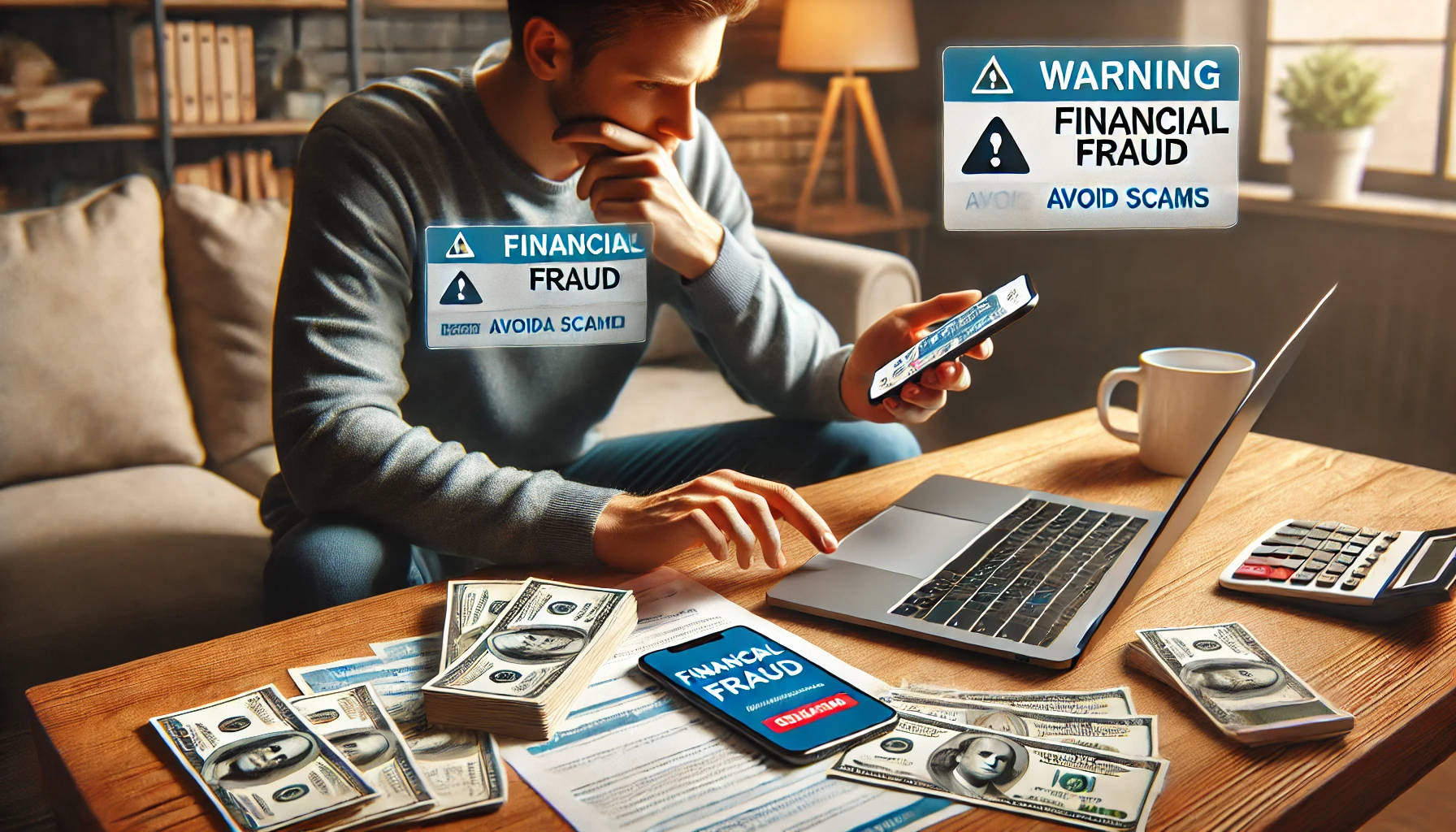Introduction
Financial scams and fraud are becoming increasingly sophisticated, targeting individuals through emails, phone calls, and online transactions. Protecting yourself from these threats is essential to keeping your money and personal information safe. This guide will help you recognize common scams and take proactive steps to avoid them.
1. Recognize Common Types of Financial Scams
Scammers use different tactics to steal money or personal data. Here are some of the most common scams:
- Phishing Emails and Texts: Fake emails or messages pretending to be from banks or companies, asking for personal information.
- Investment Scams: Fraudulent investment opportunities promising high returns with little or no risk.
- Romance Scams: Scammers build fake online relationships to steal money from victims.
- Lottery and Prize Scams: Notifications claiming you’ve won a contest you never entered, requiring payment to claim the prize.
- Tech Support Scams: Calls or pop-ups claiming your device has a virus and requesting remote access or payment.
- Fake Charities: Scammers posing as charities, especially after natural disasters or crises.
2. Protect Your Personal Information
Keeping your sensitive data secure is the first line of defense against fraud.
- Never share personal details (Social Security number, passwords, banking information) over email or phone.
- Use strong, unique passwords for different accounts and enable two-factor authentication (2FA).
- Shred sensitive documents before disposing of them.
- Be cautious on social media—scammers can use personal details to impersonate you.
3. Verify Before You Trust
Always confirm the legitimacy of financial requests.
- Verify calls and emails by contacting the company directly using official contact details.
- Check website URLs—scammers create fake sites that look real but have slight variations in spelling.
- Be skeptical of urgency—scammers pressure victims into quick decisions.
- Ask for credentials when dealing with investment opportunities or charities.
4. Avoid Suspicious Links and Attachments
Clicking on malicious links can lead to identity theft or malware installation.
- Do not open attachments from unknown senders.
- Hover over links before clicking to see the actual destination.
- Use antivirus software to detect and block potential threats.
5. Monitor Your Financial Accounts Regularly
Regularly checking your accounts can help detect fraud early.
- Set up alerts for bank transactions and unusual activity.
- Review bank and credit card statements for unauthorized charges.
- Check your credit report for signs of identity theft.
6. Be Cautious with Online Transactions
Online shopping and digital banking can be safe if done wisely.
- Use secure payment methods like credit cards or PayPal instead of wire transfers.
- Shop only on trusted websites with “https://” in the URL.
- Avoid making transactions on public Wi-Fi without a VPN.
7. Recognize Red Flags in Investment Opportunities
Investment fraud often involves unrealistic promises.
- Beware of guaranteed high returns—legitimate investments carry some risk.
- Avoid pressure tactics that rush you into investing.
- Research investment firms before committing any money.
8. Educate Yourself and Others
Awareness is key to preventing scams.
- Stay informed about new scam tactics.
- Teach family members, especially older adults, who are frequent scam targets.
- Report scams to authorities like the FTC, local police, or your bank.
9. What to Do If You Are a Victim of Fraud
If you suspect you’ve been scammed:
- Immediately contact your bank or credit card provider to block transactions.
- Report identity theft to the authorities and request a credit freeze if needed.
- Change passwords for compromised accounts.
- File a complaint with consumer protection agencies.
Final Thoughts: Stay Alert and Stay Safe
Financial scams are constantly evolving, but staying cautious and informed can protect you from becoming a victim. Always verify requests for money or personal information, monitor your accounts, and educate those around you. A little caution can go a long way in keeping your finances secure.
